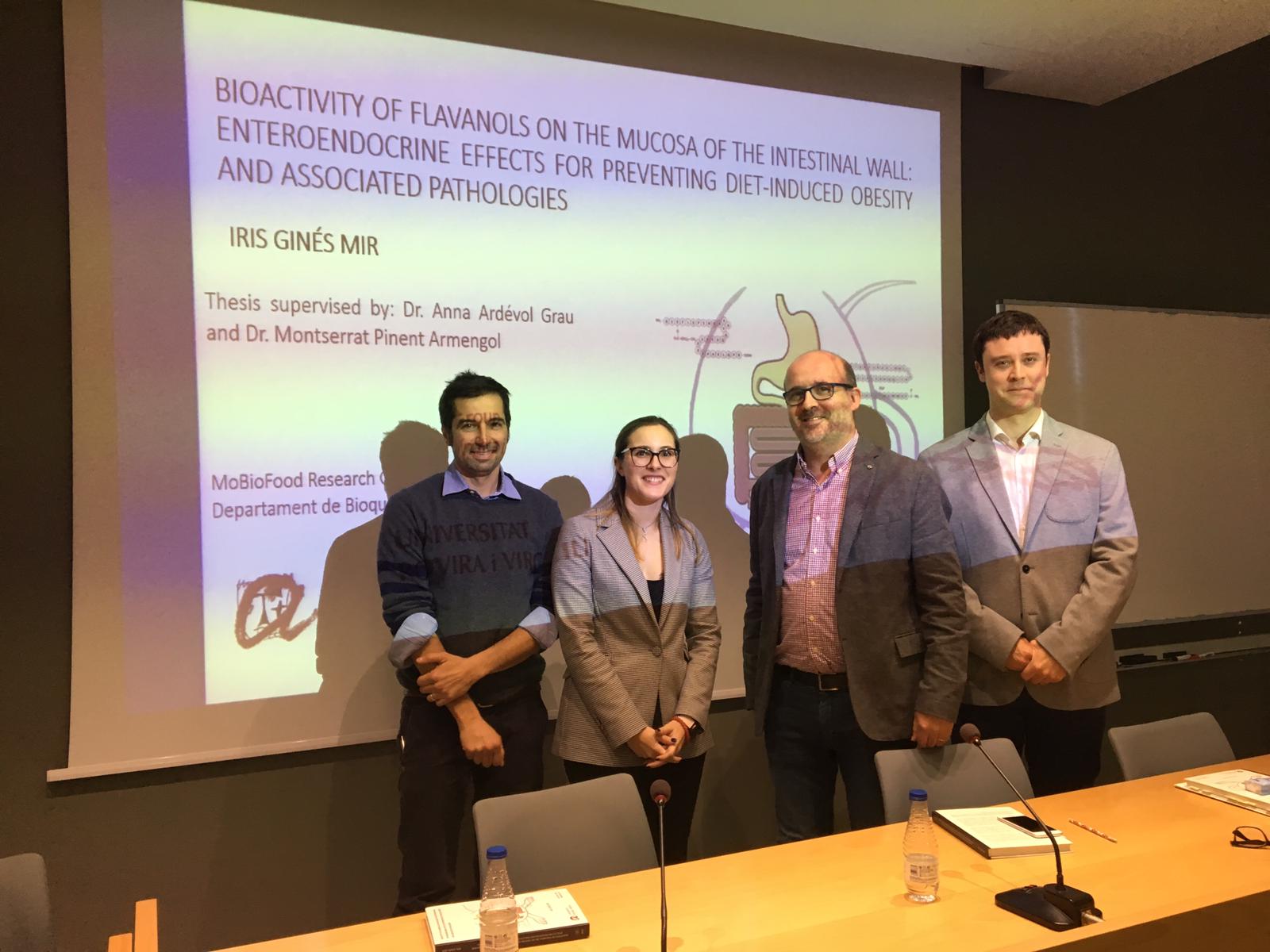Iris Ginés defended her Doctoral Thesis!
Bioactivity of flavanols on the mucosa of the intestinal wall: enteroendocrine effects for preventing diet-induced obesity and associated pathologies
Iris Ginés defended her Doctoral Thesis supervised by Dr. Anna Ardèvol Grau and Dr. Montserrat Pinent Armengol. It was entitled:”Bioactivity of flavanols on the mucosa of the intestinal wall: enteroendocrine effects for preventing diet-induced obesity and associated pathologies”.
Summary
Obesity is one of the most prevalent diseases affecting the global population. It entails metabolic disruptions that affect the whole organism, including the correct functionality of the gastrointestinal (GI) tract. Proanthocyanidins have already proved to be effective at stimulating the enteroendocrine system in healthy conditions, but their effects under an obesogenic challenge have still to be determined. For this reason, this thesis was designed to study the effects of a grape seed proanthocyanidin extract (GSPE) on the enteroendocrine system in rats fed with a long-term cafeteria diet.
Our results showed that a preventive treatment, a synchronic intermittent treatment and a corrective treatment were all capable of modulating the enteroendocrine system differently. Furthermore, each GSPE treatment showed different enteroendocrine profiles associated with changes in body weight and/or food intake. However, we had certain difficulties regarding the quantification of enterohormone secretions, which led us to develop a new ex vivo methodology that stimulated different segments of the GI tract and quantified their enterohormone secretion response, thus keeping their vectoriality.
We also found that a 10-day pre-treatment with GSPE induced a long-term upregulation of GLP-1 gene expression in the ileum that was partly mediated by the hypomethylation of its GLP-1 promoter. Moreover, these effects were maintained when GSPE was administered every other week during the seventeen weeks of cafeteria diet. In addition, since this preventive GSPE treatment presented a decreased respiratory quotient and tended to reduce the body weight gain, we evaluated if there were also long-lasting GSPE effects on lipid management in the peripheric tissues. The results showed a limitation on adipose storage and an increase in lipid oxidation in the liver and skeletal muscle that lasted seven weeks after the last GSPE dose.
To sum up, this thesis revealed that grape seed proanthocyanidins are capable of modulating the enteroendocrine system and improving the energetic state altered by a cafeteria diet, thus demonstrating that they are good agents for treating metabolic alterations induced by obesity.


